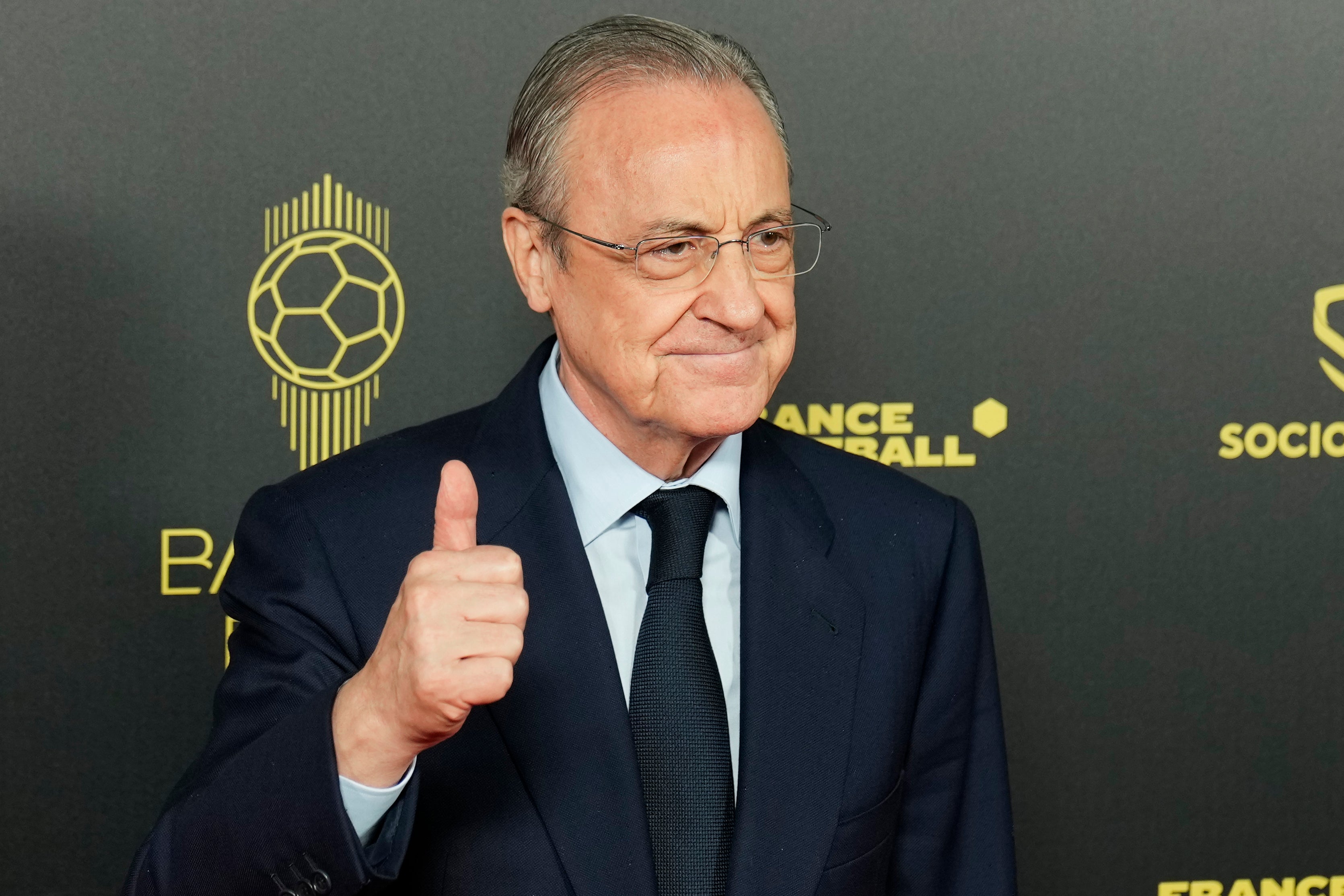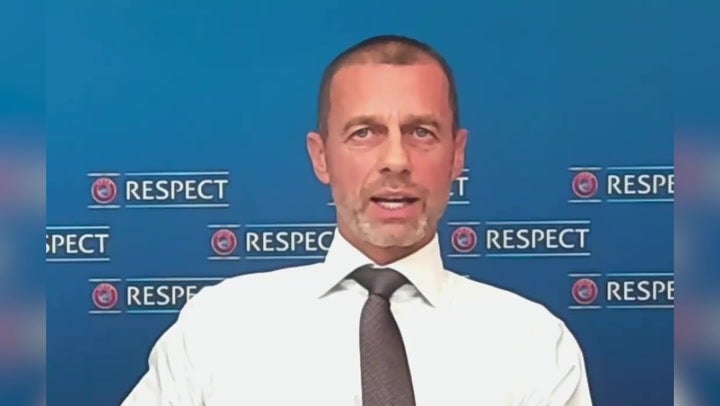The Super League is back again. But will the new ‘Unify League’ ever get off the ground?
Yet another ambitious and widely unwanted proposal has been put forward to revolutionise the European game

Your support helps us to tell the story
From reproductive rights to climate change to Big Tech, The Independent is on the ground when the story is developing. Whether it's investigating the financials of Elon Musk's pro-Trump PAC or producing our latest documentary, 'The A Word', which shines a light on the American women fighting for reproductive rights, we know how important it is to parse out the facts from the messaging.
At such a critical moment in US history, we need reporters on the ground. Your donation allows us to keep sending journalists to speak to both sides of the story.
The Independent is trusted by Americans across the entire political spectrum. And unlike many other quality news outlets, we choose not to lock Americans out of our reporting and analysis with paywalls. We believe quality journalism should be available to everyone, paid for by those who can afford it.
Your support makes all the difference.The new Super League idea still has no extra clubs, and now needs Uefa approval for that to change. Therein lies one of the circular issues for the rebranded “Unify League”, that has brought football right back around, albeit with declining interest.
This is the third successive Christmas that has been preceded by a Super League story – “the annual Florentino Perez pantomime”, as one source put it – after the last two legal controversies. Some senior figures in football even expressed surprise that it took the company charged with organising the Super League, A22, this long to come up with a new format following last year’s European Court of Justice ruling that criticised the governance of both Uefa and Fifa. But then they now have to pass pre-authorisation rules that had been amended before that. Those behind the Super League say they will now formally request recognition.
As part of fair questions about the governing bodies’ monopolies, Uefa now has to consider any applications for new competitions, based on four tests. They are: administrative and financial; sporting and technical; ethical; sporting merit. The European Court of Justice specifically said Fifa and Uefa have a right to set those rules, in order to protect the game. The criticism was only about the previous version of the rules, not the right to set them. It was seen as “interesting” within Uefa that the Super League movement now accepts it needs authorisation from the governing body as the regulatory authority.

“Essentially they have conceded this important point,” one source stated. The people behind the Super League would insist they only ever wanted “dialogue”.
The toughest test is “sporting merit”, unless the domestic leagues are willing to back any new idea.
That is where it is already tricky. Spain’s La Liga is the only one to publicly comment on the proposal, predictably excoriating it. This has largely been put down to Liga president Javier Tebas’s animosity towards Real Madrid president Perez, and an inability simply not to comment. Most stakeholders have taken the latter stance. The European Leagues group, which represents the domestic leagues, didn’t even issue a statement. It is understood that, like many relevant parties, this is down to not wanting to give the proposal any credence.
Privately, most have been highly dismissive of the new plans. It is a long way from the shock that greeted the headline news back in April 2021.
Unlike that tight and closed competition, the new proposal would be for 96 clubs to participate, building up to a Star League and Gold League that would be split into 16 teams each with two groups of eight within those. The top two clubs from each of the four groups would then go through to a final eight, amid plans for all of this to be streamed for free.
All of this would seek to run alongside the Uefa competitions, with the ultimate ambition of replacing them. A22 believe it is a “great proposal”.
That was not a view commonly shared, and one of the striking things about the response – all in private – was how it was dismissed even by parties who are now most critical of Uefa. A repeated stance was that it’s “a more boring version of the Champions League” and “not even a Super League any more”, given it’s a lot of league matches, a convoluted process and then even fewer knockouts. Many argued that it just showed how much of a struggle it is for the Super League to produce anything truly distinctive if they have to comply with the rule of qualification via domestic leagues.

Some even felt it was “a gift” to Uefa, amid suggestions they should “call their bluff” and approve it because it would be so unappealing to most clubs. The Super League backers would insist that official recognition would change everything.
A problem is nevertheless like the one the new Club World Cup faced before its Dazn deal. The commercial level of teams supplied is dependent on the money that is guaranteed, but the money guaranteed is dependent on the commercial level of the teams. It's still only Real Madrid and Barcelona, and tentative interest in Italy and mid-tier leagues. This is where it goes full circle again.
There are meanwhile no suggestions of Gulf backing, although that prospect hasn’t been ruled out.
Other clubs figures were similarly critical of the lack of detail in the business plan and how it proposes to fund a global free-to-air platform.
The major issue, in the words of one well-placed source, was one core problem. “They showed their true colours in April ‘21 and whatever they say, they can’t ever disassociate themselves from that fact.”



Join our commenting forum
Join thought-provoking conversations, follow other Independent readers and see their replies
Comments